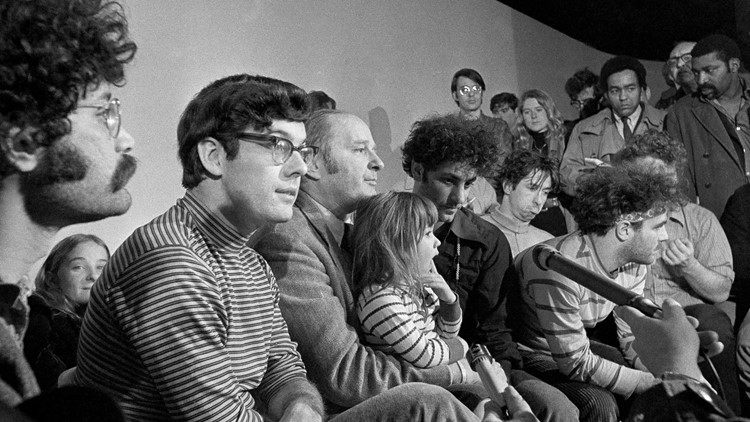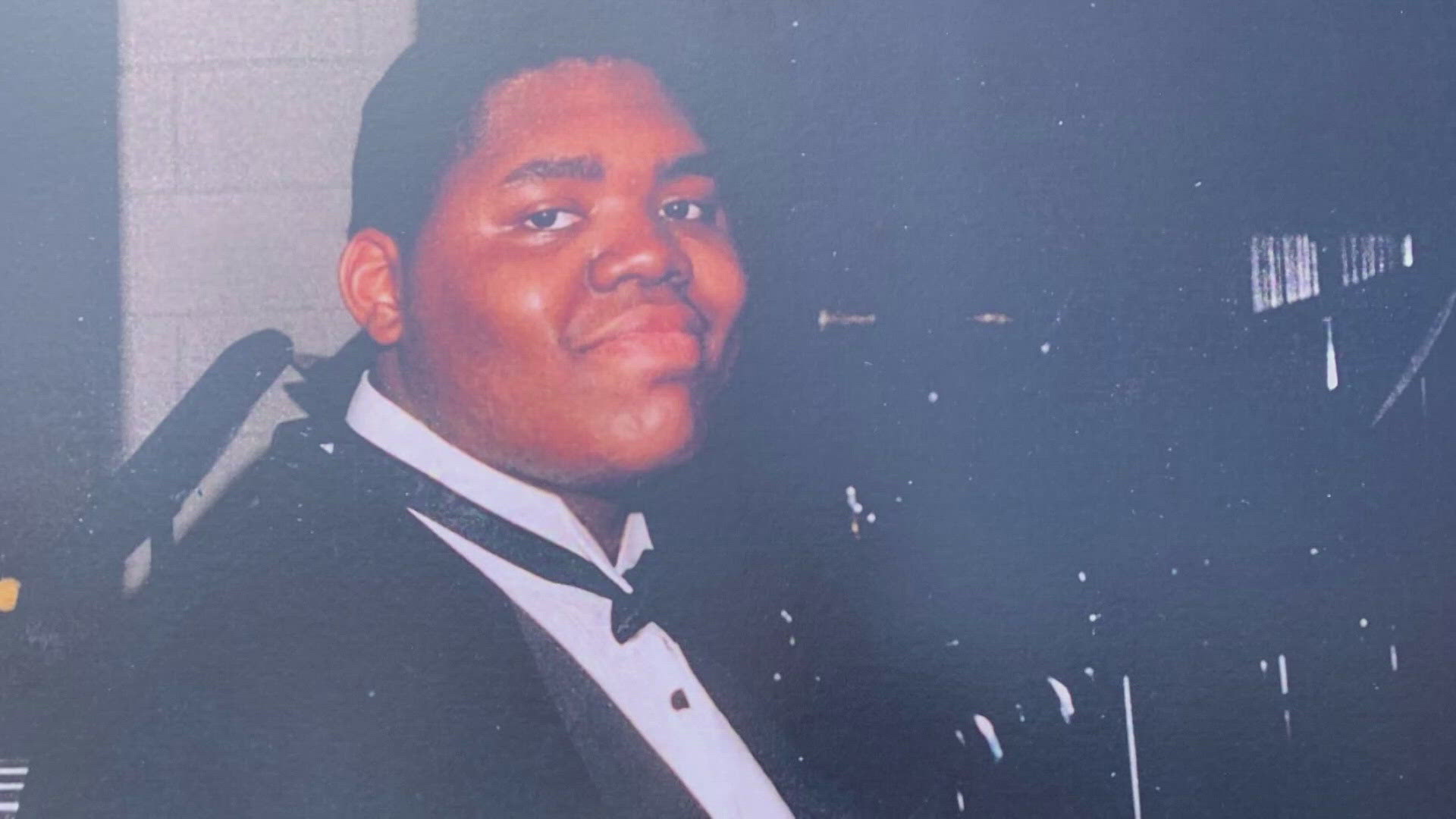Rennie Davis, one of the "Chicago Seven" activists who was tried for organizing an anti-Vietnam War protest outside the 1968 Democratic National Convention in Chicago in which thousands clashed with police in a bloody confrontation that horrified a nation watching live on television, has died. He was 80.
Davis died Tuesday of lymphoma at his home in Berthoud, Colorado, his wife, Kirsten Liegmann, told The Associated Press on Wednesday.
A longtime peace activist, Davis was national director of the community organizing program for the anti-war Students for a Democratic Society and was a protest coordinator for the Chicago convention.
Some 3,000 anti-war demonstrators clashed with police and Illinois National Guardsmen on Aug. 28, 1968, near the convention. Police clubbed demonstrators and carried out mass arrests. Davis himself was seriously injured and taken to a hospital. An investigative commission later described the clash as a "police riot."
Davis and four co-defendants — Tom Hayden, Jerry Rubin, Abbie Hoffman and David Dellinger — were convicted of conspiracy to incite a riot during the "Chicago Seven" trial in 1969 and 1970. A federal appeals court overturned the convictions, citing errors by U.S. District Judge Julius Hoffman.
Co-defendants John Froines and Lee Weiner were acquitted. An eighth defendant, Bobby Seale, was tried separately, convicted of contempt and sentenced to four years in prison. That conviction also was overturned.
Davis was "one of the most important nuts and bolts organizers of the anti-war movement in the 1960s and the early 1970s," said David Farber, a distinguished professor of history at the University of Kansas who has written four books about the 1960s — including "Chicago '68" — which details the anti-war protests in Chicago.
Unlike the more famous members of what became known as the "Chicago Seven" — including Hoffman and Rubin — Farber said Davis "was not a celebrity, but he was a very essential organizer for the anti-war movement."
"He was the one negotiating with the (Mayor Richard J.) Daley administration, trying to get permits and the right to march and rally," Farber said. "He was the hands-on organizer ... doing very practical, pragmatic things."
He said the protest became famous not because of how many people showed up "but because a commission later determined that there had been a 'police riot.'" And because of the TV coverage of the Democratic Convention, "images of this protest were seen all over the United States and indeed all over the world," Farber said.
Police targeted Davis and beat him on the head with batons, Farber said.
"It became a famous example of how a local government could stop protests from happening. It's very relevant today," Farber said.
In 1971, Davis also organized a mass demonstration against the Vietnam War that was designed to tie up traffic in Washington, D.C.
Davis' wife said his legacy goes well beyond his pacifist activism. He moved to Colorado, where he studied and taught spirituality and entered the business world, selling life insurance and running a think tank that developed technologies for the environment. He became a venture capitalist and a lecturer on meditation and self-awareness, Liegmann said.
She said he pursued a spiritual path designed to create awareness of the planet even as he was dispensing business advice as a venture capitalist.
"Everybody knows him as the '60s activist, and really what he would want to be remembered for is his vision for a new humanity — the magnificence of who we are," Liegmann said.
Davis was born on May 26, 1940, in Lansing, Michigan, and raised in Berryville, Virginia. He graduated from Oberlin College and earned a master's degree from the University of Illinois.
Davis got his start as one of the key community organizers for Students for a Democratic Society in the mid-1960s, Farber said. Davis was originally based in Ann Arbor, Michigan, but helped oversee community organizing projects nationwide.
In the early 1970s, Farber said Davis became disillusioned with the more violent course the anti-war movement was taking.
"One of the things people always said about Rennie Davis was that he was a gentle man. He was not a rabble rouser, he was not an angry, hostile person. He deeply believed in a more just and fair and equitable society and pursued it nonviolently all his life," Farber said.
In addition to Liegmann, Davis is survived by three children from previous marriages: daughters Lia Davis, 44, and Maya Davis, 28; and a son, Sky Davis, 26; as well as three siblings and two grandchildren.
Funeral arrangements were pending. Liegmann said a public memorial would be held at a future date over social media.
"He is so beloved that I owe that to the world," she said.
___
Associated Press writer Rick Callahan in Indianapolis contributed to this report.



